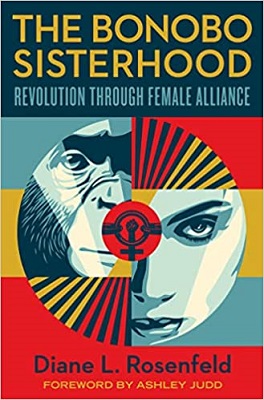In 2011, Lara Logan, a CBS reporter, was in Cairo’s Tahrir Square covering the Arab Spring celebration– the peaceful overthrow of Hosni Murbaraks’ military dictatorship. The crowd was jubilant as they sang and danced in the streets, so the reporter was surprised when her translator suddenly shouted, “Run! Run!”
She did her best to follow him through the swirling crowd but soon lost sight of his back. What followed was an event that made media headlines. Surrounded by 200-300 men, Logan felt their hands as they tore at her clothes, a frenzy that would not be satisfied until she was naked in their midst.
If she cried for mercy, no one heard her. Instead, countless males jammed their fingers up her vagina or engaged in sodomy before passing her to another as if she were a slab of meat. The entire time, she hung suspended by her arms and legs like an item of wet laundry. Little wonder that her mind collapsed into a black hole of certainty. “I’m going to die.”
Somehow, a knot of women nearby managed to reach out and pull her into their midst. Her nakedness they shielded with their bodies, a barrier that stopped the men in their tracks as if confronted by a tsunami. There was no mistaking the message that blazed from the women’s eyes. “We do not know this victim, but she is female. She is us.”
Logan suffered wounds that kept her in the hospital for four days. Healing her psyche would take longer. Even so, she was lucky. Two of her male cohorts were killed that day in Tahrir Square.
Readers may be surprised to learn that Logan’s claim to have been gang raped wouldn’t hold up in an American court. Rape excludes acts of oral, and statutory rape; rape with an object, finger, or fist. Rape is limited to penis penetration. The other violent act, the law reduces to a charge of assault. Little wonder that Carrie N. Baker, writing in the Summer 2023 edition of Ms, conclude that women aren’t going to win within the legal system. (pg. 20)
The sisterhood Logan experienced is a powerful force for women’s rights but it’s unreliable. Sojourner Truth, a former slave, pushed her way onto the platform of the Women’s Rights Convention in 1851 where she was initially unwanted. Finally given her voice, she asked the audience why they’d attempted to exclude her. “Ain’t I a woman?” Not waiting for an answer, she went on to define the power of sisterhood, a message that those gathered in that room needed to hear. If the first woman God ever made was strong enough to turn the world upside down all alone, these women together ought to be able to turn it back and get it right side up again.
So far the women’s movement hasn’t righted the wrongs against their sex. Other social divide them. That’s why Jane Rosenfeld’s new book, The Bonobo Sisterhood should be a primer for every female. An activist and member of Havrad’s Law School, Rosenfeld looks to the apes as a model for female behavior. Bonobos live in matriarchal societies, proving that male dominance isn’t inevitable. Nor should it be. Patriarchy works against women’s interests and uses sexual coercion to control females as reproductive resources. (“Be Li kth eBonobos,” by Carrie N. Baker, Ms., Summer 2023, pg. 20.)
Bonobs females withstand male aggression by practicing cohesive behavior. When a male threatens a female in the species, she lets out a special cry. Hearing it, others of her sex come to her assistance–whether they know her, like her, or are related to her. (Ibid, pg. 21) This unquestioning unity enables the females to contain male aggression. Activist/actor Ashley Judd who wrote the preface to Rosenfeld’s book calls that unity empowerment through empathy. (Ibid, pg. 23)
Empathy without regard to race, religion, culture, or political ideology is what Egyptian women gave to Lara Logan on the afternoon of her mass rape. I’ve extolled that form of sisterhood before. Our mutual security should be our common bond. We owe each other that much loyalty. “Aint we all women?”

